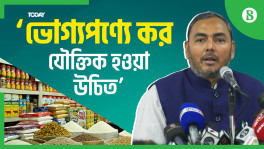The UN knows Afghanistan is messed up. But it’s keeping mum
An internal United Nations report details escalating Taliban violations of human rights—and little UN leverage

An internal United Nations report confirms the worst fears about Taliban excesses, including abuse of women and children, muzzling of media, targeting of civil society activists, shuttering of human rights organisations, and substituting public education with extreme religious indoctrination.
The report on the human rights situation in Afghanistan in May, by the UN Assistance Mission in Afghanistan (Unama), details egregious violations and abuses by the Taliban administration. The report itself makes clear that despite almost a year of engagement with the Taliban as the de facto Afghan government, the UN has made little difference to the Islamists' disregard for basic human rights, including access to food and education.
In the 10 months since the Taliban retook the country—thanks to former US President Donald Trump's so-called peace deal and current US President Joe Biden's decision to go ahead with a withdrawal of all American troops—the country has gone backward at vertiginous speed. The Taliban have reversed most of the social, economic, and political advances made in the 20 years of the Afghan Republic.
One big complication: International aid donors will not give money to the Taliban, pumping funding instead through other channels. But the UN has bigfooted the smaller charities and nongovernmental organisations that work in Afghanistan, which they say makes it tough to do their job—and ensure that money gets to the Afghan people, rather than the regime.
Afghan aid sector sources say Taliban control of local NGOs gives them access to supplies that are often redirected to their own supporters and soldiers. The June 22 earthquake of about magnitude 6.1 that devastated parts of eastern Khost and Paktika provinces, with deaths and injuries in the thousands, further highlighted the lack of regulation and oversight of the sector. "None of the NGOs, local or international, have the capacity to challenge the authorities," said the head of a local NGO, who requested anonymity for their safety.
Doctors and emergency response professionals were among the many thousands who left the country after the Taliban's takeover in August 2021. Many of those who remained were fired as the new regime cleared out the remnants of the republic.
Mohammad Haqmal, Afghanistan's former chief of public health, said: "This is a case of small people doing big jobs. They have no resources and they are not interested in listening to people who know what to do in these circumstances, they are not interested in learning. It is a mess."
The UN has appealed for almost $5 billion to meet humanitarian needs in Afghanistan this year, saying around half the population, estimated at 38 million people, face serious food shortages. Aid is largely delivered by local partners—there are 4,000 registered NGOs in Afghanistan, sources said, though only about half are operational.
The UN Security Council, in a briefing Thursday on the situation in Afghanistan, heard that despite measures to ensure the Taliban could not get their hands on international aid money, and the Taliban's own promises that they would not even try, the new government is "increasingly seeking to play a role in the selection of beneficiaries and channelling assistance to people on their own priority lists."
Unama regularly publicises its meetings with Taliban figures and says it is continuously pressing them to honour commitments to human rights. The three-page Unama document, obtained by Foreign Policy, makes clear little, if any, headway has been made in improving conditions for millions of Afghan people.
The report is a regular internal briefing on the overall human rights situation, distributed to UN agencies, as well as member country embassies and other interested parties. One possible reason for confidentiality is the belief, as in countries like China, that private pressure is more effective than public shaming. Aid sector sources said that UN agencies in Afghanistan fear overt criticism could prompt the Taliban to curtail their operations.
The Taliban have not just rolled back human rights for women and other Afghan citizens. They have gone on a killing spree against opponents all over the country, according to the UN report. Sources inside and outside Afghanistan report the Taliban have detained, beaten, tortured, and killed people, and torched their homes, in the Panjshir Valley, near Kabul, where resistance to Taliban rule has been sustained. In other parts of the north, too, fighting has been met with vicious retribution.
The Unama document notes "extra-judicial killings, arbitrary arrests and detentions, and torture and ill-treatment" of people accused of association with the National Resistance Front, as well as the local Islamic State affiliate, Islamic State-Khorasan.
That is direct violence. But the Taliban inflict cruelty indirectly, as well.
Women and children are disproportionately affected by the extreme poverty resulting from the Taliban's economic mismanagement, the UN report said. They are vulnerable to "exploitation and abuse, such as trafficking in persons, the selling of children, child and forced marriages, child labor, and domestic violence."
The Taliban are substituting some public schools with madrassas where children are at risk of abuse and radicalization, the report said. It added, without detail, that "child recruitment and use by the de facto authorities continues to be reported."
Throughout 20 years of insurgency, the Taliban used child soldiers on front lines and to plant improvised explosive devices targeting international troops. Children were also deployed as suicide bombers, often taken or bought from poor families and raised in madrassas in the borderlands straddling Afghanistan and Pakistan. There they were trained from the age of 5 or 6 years old to use firearms and make IEDs, brainwashed with promises of paradise.
The Unama report noted that fundamental freedoms "remain vulnerable to violations," as dissenting views are not permitted. "Targeting of activists, journalists, and media workers has contributed to the majority employing self-censorship" for their own safety, it said.
And the watchdogs have been put to sleep. Institutions set up to keep the government honest, including the Afghanistan Independent Human Rights Commission and the Ministry of Justice's Human Rights Support Department have been abolished, removing mechanisms for public complaints to reach the authorities. People in jail face prolonged pretrial detention, lawyers are often denied access, and prisons fail to provide adequate food, accommodation, health, and other services.
The report notes that the Taliban, despite not being recognized as the legitimate government, are nevertheless bound by existing treaties guaranteeing the "civil, political, economic, social and cultural rights of all persons in Afghanistan."
While the UN report warned that flouting these obligations will inevitably lead to civil unrest, some sources close to the Taliban have said growing frustration with the extreme poverty and near starvation of millions of people is reaching boiling point.
"The Taliban will be the agents of their own destruction if they do not take care of the needs of all of the people," said a source close to the Taliban leadership, who also requested anonymity for their safety.
"The enemy of the Taliban is famine, drought, and lack of security. Unhappiness is about to give way to anger, and if just one percent of the people start fighting, there will be no more Taliban."

Lynne O'Donnell is a columnist at Foreign Policy and an Australian journalist and author. She was the Afghanistan bureau chief for Agence France-Presse and the Associated Press between 2009 and 2017.
Disclaimer: This article first appeared on Foreign Policy, and is published by special syndication arrangement.


 Keep updated, follow The Business Standard's Google news channel
Keep updated, follow The Business Standard's Google news channel
















